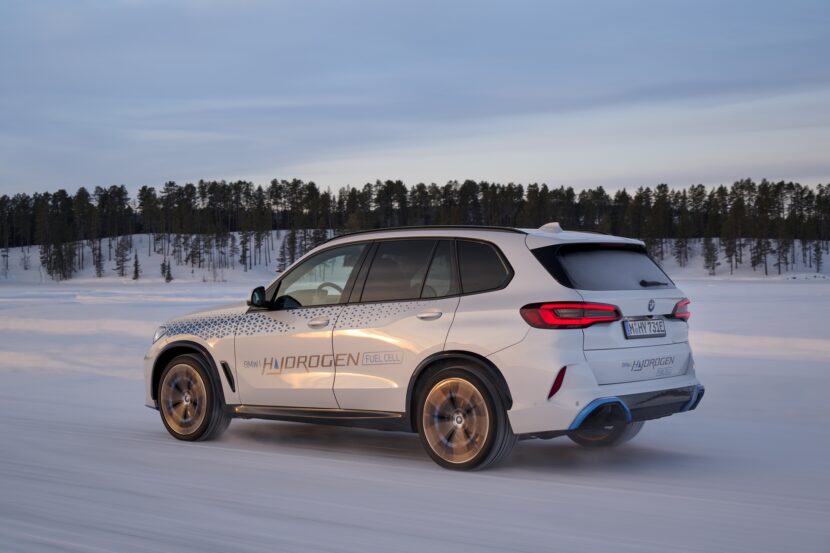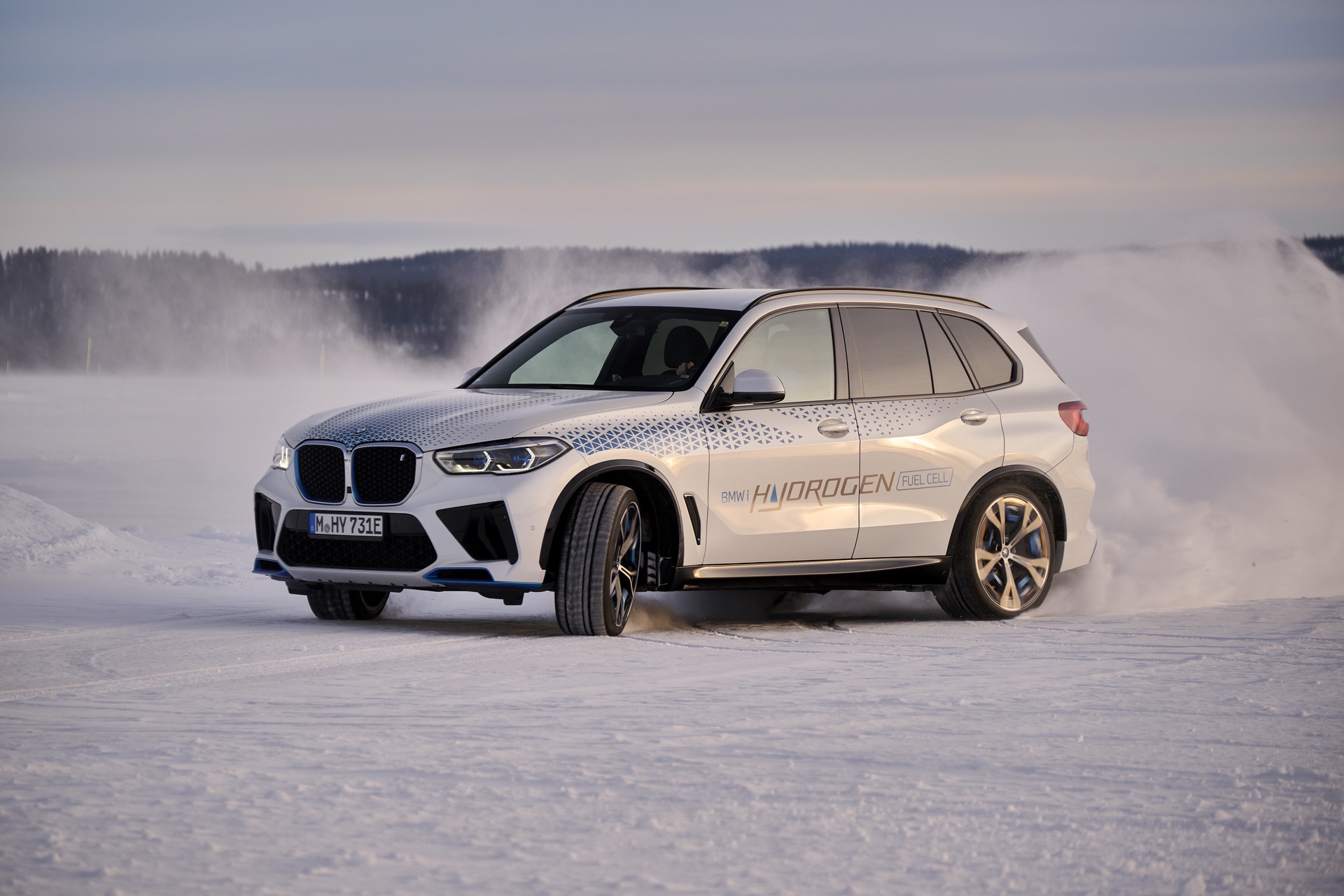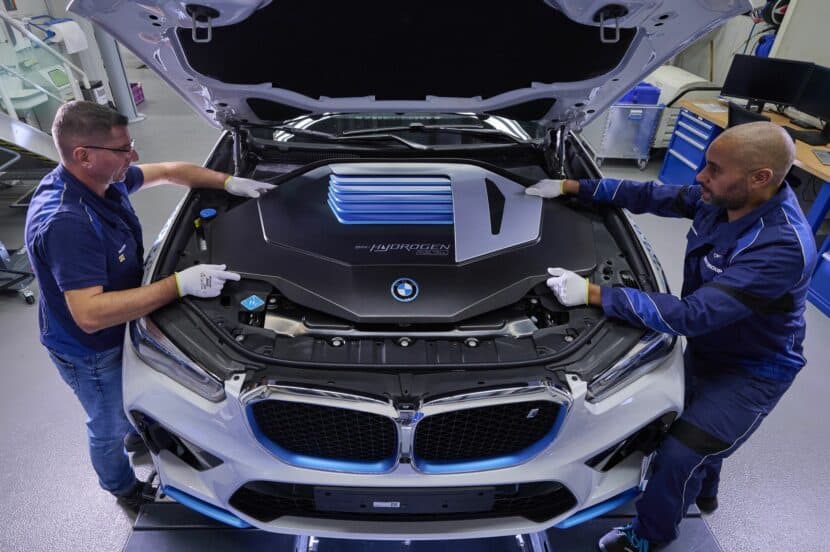The future of cars is inevitably electric but BMW wants to prove it doesn’t necessarily have to be all about batteries. To that end, it’s one of the few automakers, along with Toyota, that has been developing hydrogen technology for decades. While the E65-based Hydrogen 7 is the company’s best-known project, there was also an older 750hL based on the E38 back in 2000. More recent experimental cars included a 5 Series Gran Turismo and even an i8.
5 Five Units Coming To The US
For its latest project, BMW opted for the X5 and renamed it the iX5 to reflect the zero-emission powertrain. It has already entered production at the Spartanburg plant where each vehicle is built before being shipped to Munich to receive two hydrogen tanks. It turns out some of those vehicles will return to the United States as we’ve learned from company officials a fleet of hydrogen-fueled SUVs is bound to hit stateside by the end of the year.

“A fleet of five iX5 Hydrogen vehicles will be coming to the US as part of this global pilot program,” a BMW spokesperson told us. “As they are still experimental prototypes, there are rules that prevent us from simply releasing them to the public as we did with past programs. We are currently devising plans to get the vehicles into the hands of as many media and other stakeholders as we can, but those plans are still in development,” the spokesperson added.
All of them will be initially shipped to California at the Oxnard BMW development center. If this strategy sounds familiar, BMW did the same with the V12-powered Hydrogen 7 in the mid-2000s. Why California? Because it has 81 hydrogen refueling stations, hence why Toyota chose to launch the Mirai sedan in The Golden State located in the western part of the country.
400 Horsepower, 500 km Range
As a refresher, the BMW iX5 has one of the hydrogen tanks mounted in the center tunnel while the other is positioned underneath the rear seats. The two tanks hold 6 kilograms of hydrogen which can be refueled in 3-5 minutes. BMW touts a continuous power output of 170 hp (125 kW) from the fuel cells. The fifth-generation eDrive setup with an electric motor placed at the rear brings an additional 227 hp (170 kW). The total output is 400 hp (295 kW).
It’s enough muscle for a 0 to 60 mph run in less than six seconds for a vehicle that has just about the same weight as the plug-in hybrid X5, which has been renamed xDrive50e with the SUV’s recent Life Cycle Impulse. With the two hydrogen tanks full, the iX5 can cover distances of up to 310 miles (500 kilometers).
Although the BMW iX5 is an experiment, BMW Group chairman Oliver Zipse has pledged to launch a viable hydrogen car before the end of this decade. Keep in mind BMW is not all alone in this endeavor as it’s closely working with Toyota to accelerate development and spread out associated costs.






































































